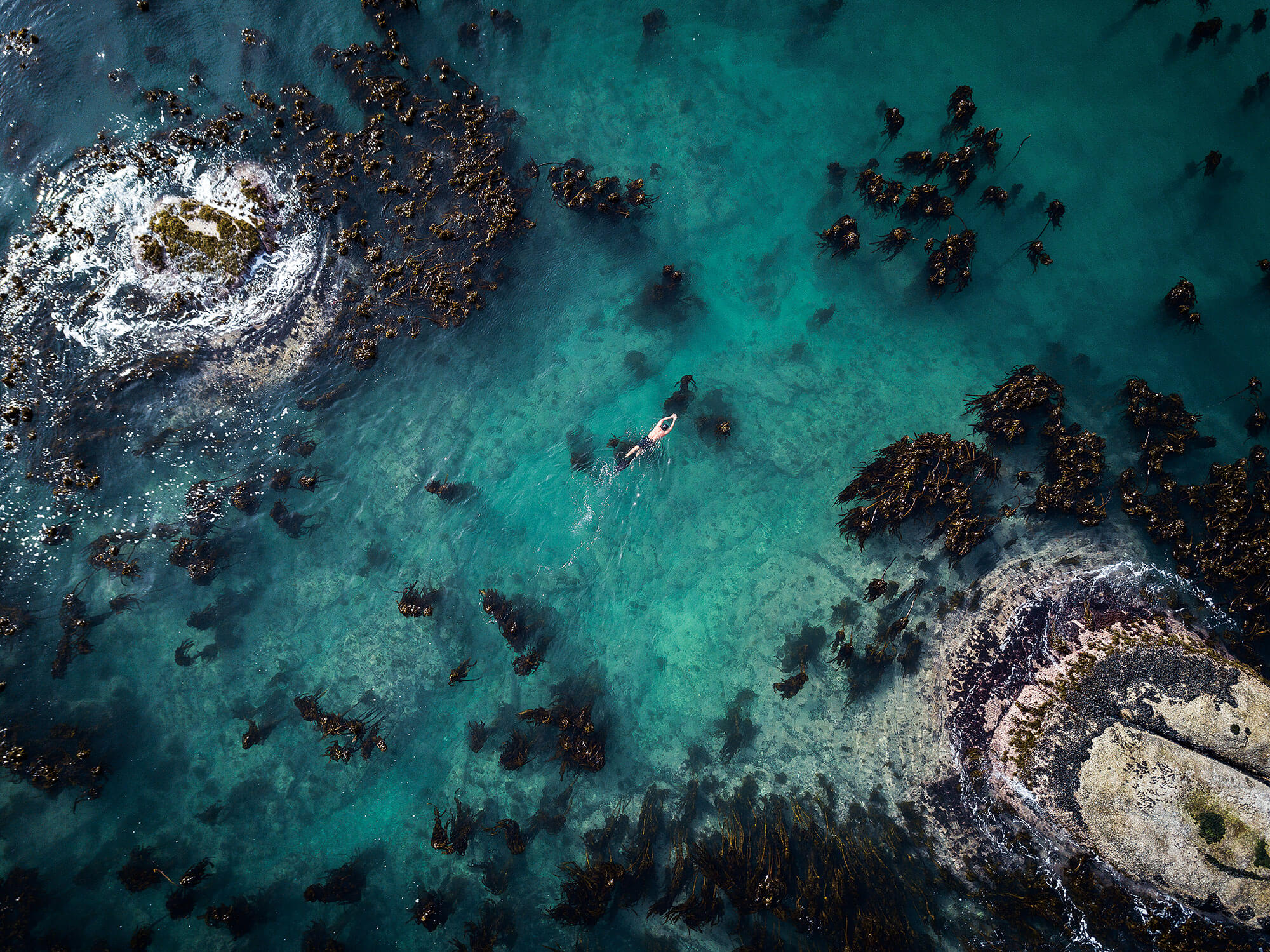Advertisement
Artists offer a different perspective on reality, encouraging and enabling us to look at the world with a renewed sense of wonder. And Craig Foster and Ross Frylinck do just that with their latest offering, Sea Change.
See! Change!
Most of us see the world in three dimensions. Some of us who have been unfortunate enough to lose the sight of one eye see it in two dimensions, but trackers, semioticians and – perhaps – physicists see the world in four dimensions.
A few years ago, walking through the bush with an experienced tracker, I came across an interesting sinuous mark in the sand. I asked what it was and, instead of just telling me, the tracker encouraged me to look around, study the nearby spoor and try to figure it out. With a bit of guesswork and nudging in the right direction, I eventually worked out it was the track left when an elephant picked up dust with its trunk to spray over its back. In the moment of realisation, I saw the elephant dragging its trunk through the sand and sucking it up, and I saw the sunlight diffused through the dust, as it harrumphed it over its back. Yes, I heard the ‘harrumph’ and I even smelled that distinctive Lowveld dust. I saw in four dimensions, travelling through time. That’s what tracking is.
And, while the concept of tracking on land is a skill most of us have not learned, we sort of understand it. But tracking underwater? In the ocean, where everything is in constant flux?
Advertisement
Before reading Sea Change I would have said that it was impossible, but this book fundamentally challenges many of the things we hold as unassailable truths. Segueing between hard science and deep spirituality as freely as the ocean oscillates with the surge, the book documents the parallel journeys of the two authors as they explore the kelp forests off Cape Town, and rediscover the primal joy of being human. On one level, it’s an exquisite celebration of the spectacular sea life off our coast, and a quite rigorous study of the intertidal environment and its connection with human evolution. But, on another, it’s a deeply symbolic investigation into our interconnectedness with creation – particularly the ocean – and with each other.
Using their real-life experiences as fathers and sons, and gentle explorative encounters with sea creatures like octopi, sharks, cuttlefish and limpets, the authors document the changes they experience through regular, very challenging – and sometimes frightening – exposure to cold water.
The latest evidence suggests very strongly that we evolved here – along the coast between Cape Town and PE – and, the authors suggest, the process of becoming human was partially fuelled by our ancestors’ constant immersion in cold water.
And that’s the eponymous sea change – the changes wrought in the authors’ minds, bodies and souls through allowing their primal natures to re-emerge. For example, there are two ways of dealing with cold water. Buy a wetsuit, or persevere until your body relearns its capacity for thermogenesis – raising your body temperature in response to cold. There’s more to it than that, of course – much more – but the immortal bard put it pretty well:
… nothing of him doth fade,
but does suffer a sea-change
into something rich and strange.
SEA CHANGE: Primal Joy and the Art of Underwater Tracking by Craig Foster and Ross Frylinck. Quivertree Publications (Cape Town) 2018.



